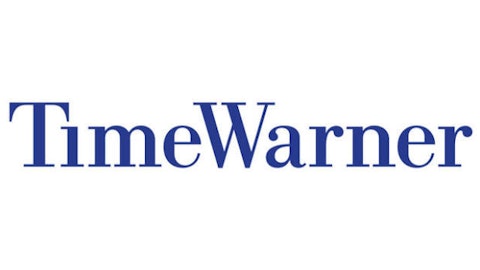What’s more, Time Warner Inc (NYSE:TWX) has a vested interest in cable companies selling video subscriptions as it sells a package of basic cable channels such as TNT, CNN, and Cartoon Network. That’s where the company makes most of its money, and while HBO represents a sizable chunk of the checks the company receives from cable companies, taking HBO a la carte will likely hurt more than it helps.
HBO co-President Eric Kessler explains, “We’ll gain a little over here [streaming], and we’ll lose a lot over here [cable] … there would be a net loss.” Couple HBO’s losses with the expected losses from Time Warner Inc (NYSE:TWX)’s other channels, and the increased cost of going a la carte, and it’s clear we’re far from a solo subscription service.
If not now, when?
Kessler continually iterates that “at present” it doesn’t make sense for HBO to make a stand-alone service. That opens up the possibility that, one day, HBO will provide some sort of internet streaming only package.
HBO currently has about 28 million subscribers out of about 101 million total U.S. cable TV subscribers. That number has been flat for a while as the company experiences a churn rate of about 10 million subscribers per year. HBO GO was created, originally, as a tool to help reduce that exorbitant churn rate.
It certainly helped, but 25% of HBO GO users still ditch their subscription every year – compared to 36% overall. HBO has also done a poor job of getting subscribers to sign up for the service with just 5 million users. Setting HBO GO free from a cable subscription and putting a bigger marketing effort behind it will certainly help alleviate these problems, and allow subscription numbers to continue growing.
Currently, however, there are 73 million cable TV customers in the U.S. that aren’t paying for HBO. With estimates of about 5 to 6 million broadband subscribers with no multichannel TV package, former CEO Bill Nelson said, “It makes sense to go after the bigger group.” Kessler puts it another way, “In marketing HBO we are targeting the people that are most likely to buy HBO, and those are the people that who love television.” People who love television pay for cable, so it sees no reason to ditch the package now.
As more people ditch cable, even TV-lovers, that strategy may change. Hulu Plus subscriptions grew to 3 million last year – double its 2011 number – Netflix has 30 million, and Amazon Prime has an estimated 10 million subscribers. These numbers are growing rapidly every year, while video subscriptions at cable companies decline. Once the market hits a tipping point, the value proposition will be too compelling for HBO to stay tied to cable.
The article Why HBO Won’t GO Solo Anytime Soon originally appeared on Fool.com and is written by Adam Levy.
Copyright © 1995 – 2013 The Motley Fool, LLC. All rights reserved. The Motley Fool has a disclosure policy.

